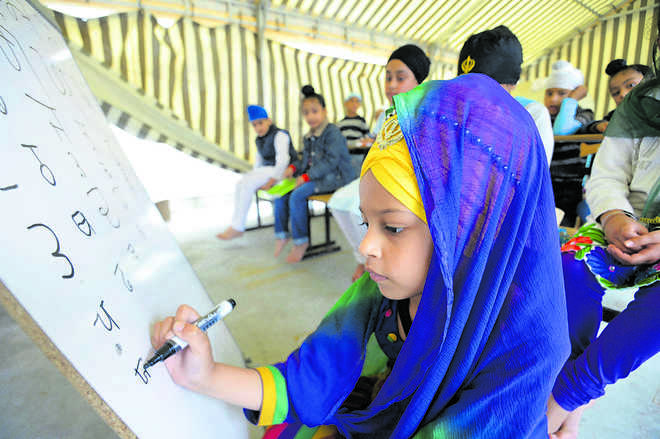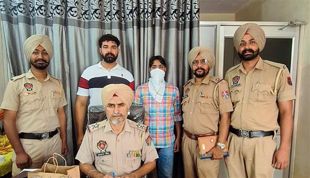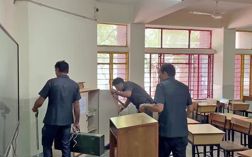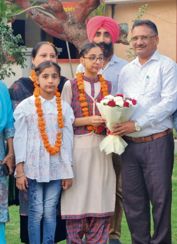
A Sikh girl attends a language class at the largest gurdwara in France, in Bobigny, a suburb of Paris. AFP
Sujinder Singh Sangha
PUNJABIS are an increasingly globalised transnational community transcending national boundaries and so is the Punjabi language in Gurmukhi script. The status of the Punjabi language varies significantly from it being perceived as one of the official languages of India, to an informal community language on the margins in diaspora.
Punjabi is now gradually being institutionalised as the main working language in Punjab. However, it is struggling to enter curriculum provision and mainstream media. Even in countries like the US, Canada, the UK and Australia where Punjabis are long established, the language is facing acute challenges. Due to the efforts and campaigns of numerous individuals and groups (such as teachers, writers, academics and community activists) to formalise the presence of Punjabi language in the Gurmukhi script, it is has been thrust into the public and educational agenda.
The Punjabi language in the Gurmukhi script has been taken around the world and is used by individuals, families, community, social, religious, cultural, trade and political organisations. Over the recent decades, print media, publications, community radio and TV channels, films and the new social media using different digital platforms, have sustained the Punjabi language in speech and script. Like previous efforts, campaigning and lobbying also continues to secure its place in formal education. Punjabi language provision in education and its inclusion by the BBC are the latest examples of such attempts. The community's interests, needs and demands for education, news, information and entertainment are ever changing and so are their aspirations in terms of meeting them in Punjabi language.
After a period of relative stability during the reign of Maharaja Ranjit Singh, over the last 170 years of the British colonial and post-Independence period, many Punjabis have become mobile through joining of the Army, security agencies, agricultural and infrastructure development projects both within and outside India. They have been venturing out to seek work in formerly British-ruled areas around the world from Australia to North America.
World War II, the rebuilding of Britain, Partition of India and changes in Africa introduced new economic dimensions triggering a wave of migration of Punjabis. Some also went to work in the oil-rich Middle-East areas and many came to European Union countries. Emigration became more intensive over the 1980s-90s due to economic uncertainties caused by political turmoil in the Punjab. It is estimated that more people of Punjab origin live abroad than in the rest of India (outside the Punjab state). So Punjabis now live, learn and work in around 50 countries. Now as new migration diminishes, the challenge of sustaining the Punjabi language in Gurmukhi script is becoming intense. For example, almost all Punjabis in UK by 2050 will be born or brought up outside Punjab. They will have little familiarity with Punjabi in Gurmukhi script. The challenging question is that what strategic programme can be developed and implemented, to keep the language and its script alive? Unesco’s International Mother-Language Day is a good reminder to develop and implement a sustainable programme to keep the language and script alive in the process of globalisation.
The writer is a former Principal & CEO of a college in UK



























